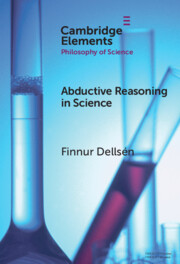Refine search
Actions for selected content:
3 results
1 - Introduction
-
- Book:
- Back to Black
- Published online:
- 14 November 2024
- Print publication:
- 17 October 2024, pp 1-26
-
- Chapter
- Export citation
2 - The Puzzle of Racial Reclassification
-
- Book:
- Back to Black
- Published online:
- 14 November 2024
- Print publication:
- 17 October 2024, pp 27-55
-
- Chapter
- Export citation

Abductive Reasoning in Science
-
- Published online:
- 03 June 2024
- Print publication:
- 17 October 2024
-
- Element
-
- You have access
- Open access
- HTML
- Export citation
